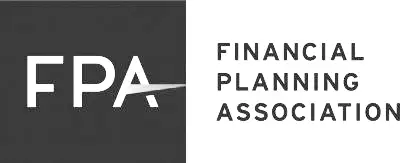Owning a home is said to be part of the American Dream. While not for everyone, purchasing and owning a home is equally exciting and intimidating. Many of us have dreamed of the day we are holding the key to our brand new (or new to us) home but as I am currently learning, there is a lot more that goes into the process of getting to that day than I ever imagined. The following are some of the items you should expect.
Prep Steps:
- “How much home can I afford?” – Often, people will just compare what they are currently paying in rent to what their prospective mortgage payment would be. While as a baseline this can be helpful, there are many other costs associated with owning a home that should be considered. Developing a comprehensive financial plan can be very helpful in this process as it will look at all aspects of your situation and help you get a better idea of what price range you should aim for, given your current income, asset and debt levels.
- Find a realtor – A realtor will be an invaluable party to your search and closing process, so make sure you feel comfortable with them as you will remain in constant contact with them.
- Obtain a pre-qualification from a lender – you will need to speak with a mortgage originator who will ask for items such as your current income, asset and debt levels, and your credit score. With this information, the originator will be able to give you a rough idea of what your interest rate would be and if you would be approved for a mortgage when the time comes.
The Search:
With the preparation all wrapped up, the search begins. From websites, to newspapers, to driving around neighborhoods you like, there are many different ways to find your future home. Your realtor will be able to set up times to tour homes and you can attend open houses to get a feel for what the inside of the home looks like. This will likely be the most fun part of the process (besides being handed the keys) so enjoy it, as once you find your home there will be a whirlwind of numbers and paperwork headed your way.
The Offer:
It’s likely that you will not be the only person putting an offer down, so you want to make sure your offer is the most attractive to the seller. While higher offers obviously catch the eye of the seller, other items come into play as well – such as due diligence and earnest money. The seller will likely take some time to review the offers and make their selection, so prepare for the waiting game. If your offer is selected, you’ll begin the process to closing, if not, the search is on again!
“Under Contract”:
Once under contract, you will begin the process of setting up inspections and obtaining a mortgage.
- Inspections: these occur during the due diligence period. Having someone come out to inspect the home is vital, as you wouldn’t want to buy the home without having any underlying issues fixed. If any issues come up, both the seller and buyer will be notified and it will need to be negotiated who will pay to have the issues resolved. Issues can range anywhere from termite infestation to a cracked foundation and anywhere in between. There is a cost associated with having the inspection done, but the peace of mind knowing that any issues will be taken care of will far outweigh that.
- Obtaining a mortgage: it is likely easiest to request your first quote from the lender you obtained your pre-qualification from as you have already established the relationship, but remember not to take their quote as the end all. Shopping around can save you thousands in closing costs and fees as well as potentially lowering your monthly mortgage payment. There are many different types of loans, each with their own terms and conditions, so make sure to investigate all of the options before signing the contract. Once you’ve made a selection, you will be asked to provide documents such as tax returns, pay statements, bank statements and W2s, so make sure to keep those readily available to make the process as smooth as possible.
- Approval: the lender will review your documents and credit reports, and if approved, the “under contract” process is pretty smooth to closing. If you’ve managed to create good relationships with your lender, realtor, and (potentially) financial planner, they can serve as valuable resources during this time and will be there to answer any questions you may have.
Closing:
When your offer was initially accepted by the seller, a closing date was more than likely established, which is typically 40 days or so later, though that time period may vary. Closing is the day when you put down your down payment, pay any closing costs, sign deeds and other documents, and receive the keys to your new home. After a long and arduous process, you will officially be a homeowner!
The process of buying a home will likely be a stressful experience, but having determined how much home you can afford and surrounding yourself with people you know and trust will make the end result a rewarding one. Contact us today if you’d like more information on the financial planning process.
Copyright: kzlobastov / 123RF Stock Photo





